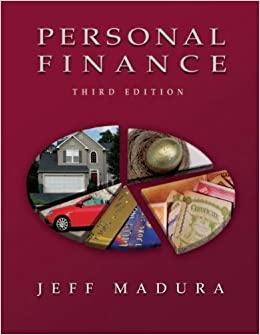Answered step by step
Verified Expert Solution
Question
1 Approved Answer
1. The S&P 500 and the Dow Jones Industrial Average indices are proxies for the broader US stock market. You notice one day that the
1. The S&P 500 and the Dow Jones Industrial Average indices are proxies for the broader US stock market. You notice one day that the S&P 500 closed UP by 0.20%, while the DJIA closed DOWN by 0.20%.
Explain how it is possible for one proxy (S&P 500) to have a positive return while the other (DJIA) has a negative return on any given day. Include in your explanation some of the names that could have caused this discrepancy. Which return (S&P 500 or DJIA) is more indicative of the 'true market return'?
To facilitate your analysis, please refer to the link below that shows the components of the S&P 500 and DJIA. Hint: Recall the S&P 500 contains the largest 500 US companies where the weight of each name is proportional to its market value. The DJIA is a price-weighted index comprised of select 30 names representing certain industries. (20 points)
Download the table here
2. A work colleague was bragging that the actively managed mutual fund he selected among your employers 401(k) electives outperformed the S&P 500 over the past 3 years. The colleague (who did not take FINC 561) claims that its a great fund, that the manager is a genius and is urging you to invest in that fund as well.
However, you believe that markets are efficient. Do you take your colleagues advice? Explain your rationale by applying concepts of market efficiency learned so far in the course. Include whether the mutual funds performance violates or disproves efficient markets and why or why not? (20 points)
3. Prior to the 2010 Dodd-Frank Act, banks employed proprietary traders (aka Prop Traders) whose job was to invest the Banks capital in various short-term trading strategies. Prop Traders often took large risks (using leverage) and were rewarded with yearly bonuses worth millions of dollars. Prop Trading was eventually disallowed by the 2010 Dodd-Frank Act.
Explain the moral hazard associated with such proprietary trading activity. (20 points
4. You see an advertisement in a book that shows how you can make a million dollars by investing in the stock market with little or no risk and very little investment.
Do you buy the book? Why or why not? If you would buy the book, consider how much you would be willing to pay. (20 points)
5. Stocks are a risky asset that have significantly outperformed Treasury Bills - a risk-less asset, over the long-term.
Why then would one invest in Treasury Bills? (20 pts)





Step by Step Solution
There are 3 Steps involved in it
Step: 1

Get Instant Access to Expert-Tailored Solutions
See step-by-step solutions with expert insights and AI powered tools for academic success
Step: 2

Step: 3

Ace Your Homework with AI
Get the answers you need in no time with our AI-driven, step-by-step assistance
Get Started


